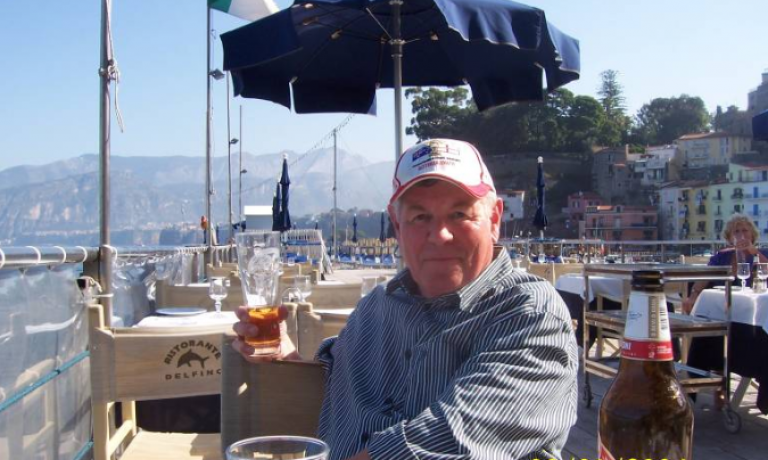Obituary: Emeritus Professor Alan Smith (1944-2020)
16 July 2020

The School is sad to announce the death of Alan Smith, Emeritus Professor of Political Economy at SSEES, who died at the age of 76.
Alan Smith, Emeritus Professor of Political Economy at UCL SSEES, died on 9 July 2020 in Ealing Hospital from pneumonia. He had struggled hard against oesophagal cancer; given a prognosis of six months, he fought on for more than two years. He was a major figure in the study of the international economics of Russia and Eastern Europe and a powerful force in the expansion of the social sciences at SSEES.
Born on 12 February 1944, Alan attended Palmer’s Boys’ School in Grays, Essex. He graduated with First Class honours in Economics and Russian Studies at the Centre for Russian and East European Studies (CREES) at the University of Birmingham. This was the first time that CREES had awarded a First Class degree – far harder to get in those days – and for a long time it remained the only First in the history of CREES.
Alan worked at British Petroleum, and then taught at Ealing Technical College (now part of the University of West London). There he met Ruth. They started going out around Christmas 1971 and were married in July 1972. Their son Steven was born in 1984.
In 1970 Alan applied to SSEES, then an institute of the University of London, to study for a PhD. He was interviewed by Peter Wiles, a well-known but slightly eccentric economist. Professor Wiles explained to Alan that instead of doing a PhD, Alan should become a lecturer at SSEES. Thus began Alan’s half-century membership of the School, as a teacher and then emeritus.
He joined the then Department of History and Regional Studies, lecturing in Economics. He specialized in the Soviet and then Russian economy, focusing on international trade, and later on the economy of Romania. Among other capacities, he served his colleagues as the Secretary of the SSEES branch of the Association of University Teachers.
In 1987 Alan became the founding chairperson of the SSEES Department of Social Sciences, a position he held for three years. He again agreed to be the head of department from 2001 to 2004. Alan fought hard for the department, seeing its growth as essential to the sustainability of SSEES, and it expanded substantially under his influence. At the same time he went out of his way to encourage and support colleagues with their teaching and research, in developing new courses and degree programmes, and in applying for promotion. He himself was promoted to a Chair in the Political Economy of Eastern Europe.
As well as numerous book chapters and articles, Alan published several major works. These included Russia and the World Economy: Problems of Integration (Routledge, 1993); Russian Foreign Trade in the Transition (Chatham House, 1996); and The Return to Europe: The Reintegration of Eastern Europe into the European Economy (Palgrave Macmillan, 2000). He edited Challenges for Russian Economic Reform (Brookings Institution Press and Chatham House, 1995).
In addition to his teaching at SSEES, Alan was a visiting professor at Dartmouth College, New Hampshire and worked at the College of Europe, Bruges. A firm believer in knowledge exchange, he advised government departments and corporations and contributing to business research analyses. He organized regular seminars for the Ministry of Defence. He was active in the Royal Institute of International Affairs, and after the fall of the USSR organized the Post-Soviet Business Forum there. UCL made him Emeritus Professor on his retirement in 2006.
Alan highly valued his family life. He was passionate about cricket, playing at a high level, and an enthusiastic spectator at Test and County matches. Alan ran several half marathons, but he never boasted of his academic or sporting achievements. He supported both West Ham and Brentford, frequently going to see the latter play. Colleagues always found him approachable and sociable, with a sense of humour which included a wonderful gift for mimicry. Now he is sadly missed by his family, friends and colleagues.
Written by his friend and a former colleague, Dr Pete Duncan.
 Close
Close

